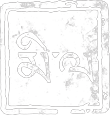Here’s the thing about spiritual teachers. They’re human.
About spiritual teachers
/ / Cambridge, Massachusetts
Part of the the Heart & the Law collection
First, an appropriate quote that my belief in Buddhism hinges upon:
Believe nothing.
No matter where you read it,
Or who said it,
Even if I have said it,
Unless it agrees with your own reason
And your own common sense.
Buddha
Here’s the thing about spiritual teachers. They’re human. They’re not gods, and when we hold them up to the standards of such, we’re often sorely disappointed. My yoga teacher, whom many people consider a master at what she does, specifically disavows such terms, smoking and eating pizza to illustrate her point. The only thing she’ll admit to is “I’ve practiced for a lot longer than you.”
I’m not saying we should forgive the indiscretions of our teachers (for example, the current allegations of a certain Rabbi formerly affiliated with Integral Institute which is affiliated with Zaadz), especially when they do things that offend our own moral sensibilities. Indeed, understanding a ‘guru’ or a ‘teacher’ as a human being is key to making an informed decision whether one believes in the ideas a person teaches.
Personally, I read WIE occasionally and enjoy the magazine even though I’m not sure about Andrew Cohen, and even though a trusted female friend of mine met him once and got really bad energy from him. And I’m aware Zaadz pulled for WIE’s Webby award this year – I actually helped in that effort.
But I think people get caught up in the idea of ‘ooh, spiritual teacher, these guys are supposed to be something more than me’ and get defensive about it. And then when one – this Rabbi for example – is plagued by his issues, people try to follow the threads back and infect the rest of the teachers with the stain of connection. (And this is not limited to non-“traditional” spiritual systems either; look at Catholic priests!) That doesn’t make sense. The most challenging accusation you can make is: “Well, if [teacher] is so evolved, how come he/she didn’t know this was going to happen?”
The answer, my friends, is that they’re only human. (But if they try to tell you differently, if they try to tell you they ARE different from you, more than human, that’s often a danger sign.)
And while I know from personal experience that there are abilities that go beyond the six senses, even people with heightened ability to perceive have blind spots, because they have emotions, they have physical limitations, they have a human form.
Connections such as our link with I-I and I-I’s former connection to Rabbi Gafni do not mean you must believe in the Rabbi (or his ideas) to believe in I-I’s ideas to be a member of Zaadz. In fact, I’m much happier saying one of our goals is the free and respectful dialogue of ideas of many shapes and forms, aimed at improving all of us.
My whole spiritual paradigm comes not from the collection of gurus but the accretion of ideas and concepts that agree with my own reason and common sense; along the way, I have met people I consider helpful in guiding me – either by showing me the path to follow or by showing me the path to avoid. The closest person to a guru for me is the Dalai Lama, and – though I can’t find evidence of this – some people say even he is not the angel he’s portrayed as.
There are people and web sites who use the failings of teachers to discount the quality of ideas; as a former student of philosophy, I recognize that as a classic ‘ad hominem’ attack – if the person is unsound, so are his ideas, or so the reasoning goes.
But that’s where it comes down to trusting yourself. The only true spiritual teacher in your life is you. Even if you think you’re giving yourself over to the will of another, you’re the one who ultimately decides whether to believe or not to believe at every moment of your life. You choose what will bring you closer to fulfillment, or God, or enlightenment, or peace. The role of a Guru is not to tell you what to do, but to get you to get off the fence & choose.
And when someone you respect or believe in acts in ways that break that trust, it helps to remember that you can choose to break those bonds, because in reality… the only thing that’s different between them and you is that they’ve been practicing longer than you.
